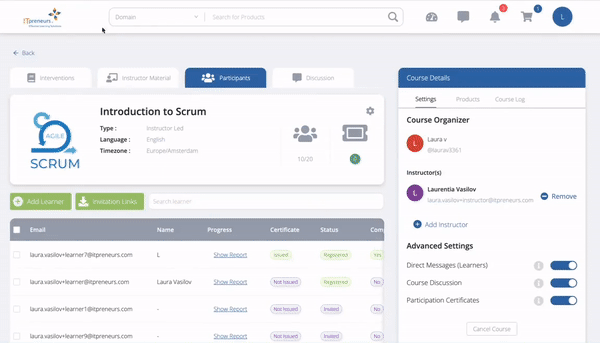Organizational Change Management (OCM) is a framework within a company to manage the effects of new business processes, changes in organizational structure, or cultural changes. To put it simply, OCM is addressing the people side of the management of change.
The human side of change is concerned with OCM. It is a structured approach that ensures the smooth and successful implementation of improvements, facilitating lasting advantages.
Improvements invariably require people to change, including how they work, behavior, or roles. There will be an impact on people regardless of the scope, size, or nature of an improvement initiative. When people understand the purpose of the change and how it will affect them and their job, and when they believe in its significance and benefits, they are much more likely to succeed in improvement initiatives.
OCM aims to persuade people of the value of a change to reduce resistance and to ensure that the change is successfully implemented and sustained. Individuals, teams, and organizations in the process are transitioning from their current state to a desired future state in which the change has been made and works as scheduled.
A somewhat specialized skill set is required to lead and implement OCM. Many organizations seek help from external suppliers, but it is not possible to transfer the accountability for OCM to external resources. Even when the responsibility for the activities is delegated, somebody within the organization must be accountable.
Why do people resist change?
Let’s discuss the reasons in detail.
- Fear of Unknown: The biggest reason people resist change is fear of the unknown. People will only move towards the future state once they believe, or more importantly feel, that the risk of staying in the current state is greater than the risk of moving forward.
- Habits: People may not have a clear picture of what the change will look like and why it is being undertaken. If they do not understand the need for change, they will resist. This is especially true of people who believe that the status quo is the only way things can be done.
- Fear of Losing Value: If past change initiatives failed or were poorly managed, there may be a lack of trust that this improvement can be effectively implemented. If the benefits and rewards are not seen as adequate when compared with the effort required to make the change, there will be resistance.
- Change Fatigue: If employees have experienced a lot of change within the organization, they may be suffering from change fatigue.
Managing resistance to change is, therefore, important to plan to manage it. This is one of the primary functions of OCM.
About the author

As an IT Service Management trainer, consultant and line manager with over 25 years of experience in IT, Marcel has performed strategic and tactical assignments in a wide variety of areas. For the ITIL 4 update, Marcel has been part of the ITIL 4 Lead Architect Team and Review Team at AXELOS. Through his association with AXELOS, Marcel comprehends the background, the architecture, and the underlying reasons of the ITIL 4 update.
Related Courseware
Sorry, we couldn't find any posts. Please try a different search.




